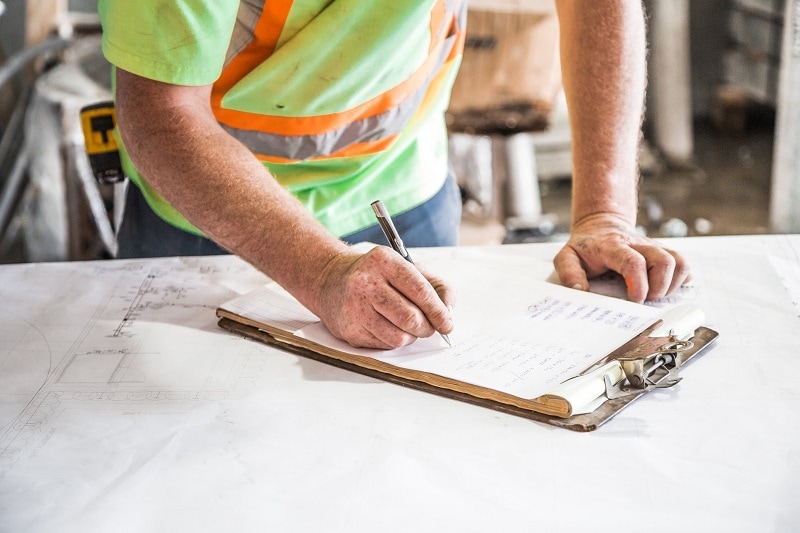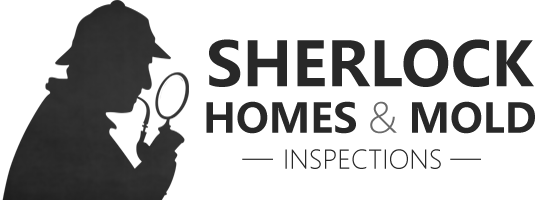Your Home Inspection Checklist: Everything You Need to Know

When you’re buying a new home, you’ll need a home inspection – but if you’re like many people, you’re not quite sure what the home inspection includes, why you need it and who pays for it. This guide explains everything you need to know about home inspections before you sign the dotted line on closing day.
General Questions
What is a home inspection?
A home inspection is a professional service that homebuyers need to ensure the investment they’re making is a worthy one. In many (but not all) states, home inspectors must be licensed. A qualified home inspector will visit the home you’re interested in buying and evaluate its structure and many of its systems to identify issues that could affect your use of the home. (Sellers are generally legally required to tell you when they know of an issue.)
The inspector will document everything with a written report, which buyers can then use to negotiate with the seller at closing. If the issues are too extensive for a buyer, an inspection contingency in the purchase contract can allow the buyer to back out of the deal without losing his or her earnest money deposit.
In some cases, sellers hire a home inspector before putting a home on the market. The inspector performs the same services for buyers and sellers.
Why do I need a home inspection?
Buying a home is a huge financial decision, and a home inspection can help you feel more at ease about your choice. The inspector you hire will uncover defects or deficits in the home that you could eventually have to pay to repair or upgrade, so it gives you a clear picture of what’s in store before you commit to the purchase.
Sometimes buyers use the issues the inspector uncovers as negotiating points with the seller; conversely, sellers use an inspection to identify issues they can repair before putting the home on the market.
Who pays for a home inspection?
The person who orders the home inspection pays for it. If you’re purchasing the home and you hire an inspector, you pay for it (unless you’ve worked out a deal with the seller). Likewise, if a seller needs a home inspection performed, he or she pays the inspector.
Should buyers and sellers have different home inspection checklists?
A home inspector doesn’t inspect the house to sway anyone’s decision or encourage someone to buy or look elsewhere. Instead, a home inspector is an independent third party who has one job: to identify issues with the home.
Whether you are a buyer or a seller, your home inspector will examine all the same components of the house and its systems.

How long will the home inspection take?
As a general rule, a home inspection takes between 2 and 3 hours. However, the size of the home and the extent of its issues can change the timeframe significantly.
Most home inspectors write down their findings as they’re examining the home; then, within a few days, they’ll provide the person who ordered the inspection with a detailed report.
Part 2: What to Know and Check For
According to the American Society of Home Inspectors, there are hundreds of items on a home inspection checklist. A qualified inspector will check:
• Grounds: The inspector will check for standing water, leaky septic systems and the grade that drains water away from the house. He or she will also see whether the yard, trees, walkways, and landscaping are in good condition and whether there are branches or bushes touching the home or hanging over the roof. Exterior structures, railings on the stairs and decks, and downspout drainage are also on the list.
• Attic: Your inspector will check for water leaks and examine the insulation in the attic. He or she will also determine whether there’s adequate ventilation and that it’s installed properly, as well as look for plumbing, exhaust vents or appliance vents that terminate in the attic or open electrical splices.
• Exterior: A qualified inspector looks to see if there’s enough clearance between the ground and siding and whether the siding is in good repair. He or she will check for cracks in the façade and for chipped, flaking or blistered paint.
• Interior: In each room, the inspector will see if floors, walls, and ceilings appear straight; he or she will look for stains, check the condition of flooring materials, and search for cracks. Your inspector will also see if doors and windows operate easily and latch properly, examine the paint, wall coverings and paneling, and check whether lights and switches work properly. He or she will determine how many outlets are there and whether they work, as well as see if heating and cooling are adequate, and look for evidence of adequate insulation in the walls.
• Kitchen: A home inspector will examine the kitchen and check for a working exhaust fan with proper venting, GFCI outlets, and water flow in the sink. He or she will also look for leaks, examine the dishwasher and other built-in appliances, and look at the cabinets, doors and drawers.
• Bathrooms: Your inspector will check the exhaust fan, flow and pressure, and drains. He or she will check the plumbing under the sink, look for rust, and determine whether the toilet operates properly, as well as check tub and shower tiles, as well as the flooring, and try to determine if there were past leaks.
• Roof: The inspector you hire will check the flashing on the roof, look for signs of mold, decay or leaks, and evaluate the shingles and other roofing components. He or she will also check the chimneys and gutters to make sure they’re straight, free from decay and undamaged.
• Structure: Your inspector will check whether the ridge and fascia board lines appear straight and level, and whether the sides of the house are straight. He or she will also check to see if door frames and windows are square (and that windows aren’t bowing), and whether the visible foundation is in good condition.
• Windows, doors, and trim: Your inspector will look for secure frames and good caulking, as well as broken glass or damaged screens.

Which parts of a home inspection are most often overlooked?
A good home inspector doesn’t overlook anything. However, some things require specialty inspections that a general home inspector won’t cover. You may need to order separate inspections for:
• Fireplaces
• Swimming pools
• Pests
These generally don’t fall under the scope of a general home inspector’s duties.
Which parts of a home inspection are most important?
Every part of a home inspection is equally important, but some things cost a lot more to fix than others do. That means a house with a cracked foundation might be one you need to pass on, while one with chipped paint on the exterior might be a great investment. It’s also important to understand if certain home issues are a higher risk based on your city. For instance, Miami and New York are more susceptible to flooding and should be inspected for proper draining.
When you receive your inspection report, go through each issue the inspector outlined. See what you can live with and what’s a deal-breaker; you might have to rely on the home inspection contingency in your purchase contract to back out of the deal if the issues would be too expensive to fix.
What are the best questions to ask during a home inspection?
If you see something that looks “off” during your home inspection, speak up. A good home inspector will welcome your questions and be happy to answer them. Your inspector will check all the home’s important components (other than those that require a specialty inspection), and you’re welcome to join him or her along the way.
Does the real estate agent need to be there?
The real estate agent who represents the person who ordered the inspection can – and in most cases, should – accompany the inspector. The potential buyer or seller can be there, too, with one caveat: the person who ordered the inspection can go, but the other party should steer clear. It’s between the person who paid the inspector and the home inspector.
A home inspection is vitally important to your purchase. It can tell you whether the home you want to buy has major issues that require immediate attention so you can make the most informed decision possible.
Download our detailed, extensive Home Inspection Checklist to bring with your during your home inspection.
Fair Use Statement
Want to share our post? Don’t worry, be happy! We’d love for you to do so. All we ask is that you link back to this page and credit Redfin for the work.

Recent Comments